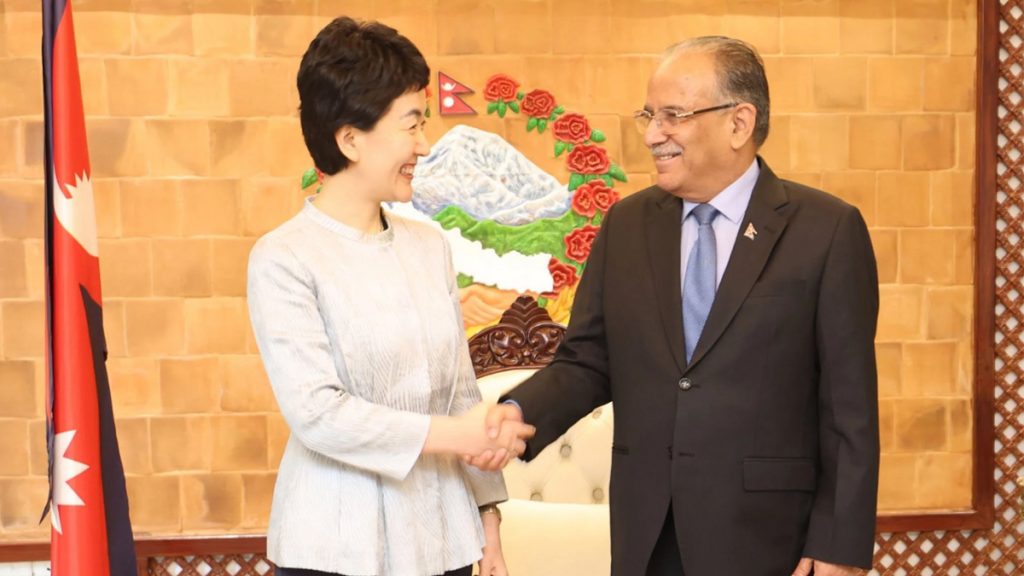Nepal Under Pressure: China's Assertive Diplomacy Raises Concerns

Kathmandu, Nepal - Growing anxieties surround China's increasingly assertive diplomatic tactics in Nepal, with accusations of undue influence and a perceived lack of pushback from Nepali leadership sparking public outrage. Critics point to a pattern of Chinese assertiveness that some see as disrespectful towards Nepal's sovereignty, especially considering the vast power disparity between the two nations.
This growing friction stems from a series of incidents where Chinese diplomats appear to be taking an unusually forceful stance, while Nepali officials have remained largely silent. Many view this as a worrying trend, suggesting China might be exploiting its economic leverage to dictate Nepal's political and economic decisions.
Examples of China's Assertiveness:
Pokhara Airport Controversy:
Despite Nepal financing the Pokhara International Airport with a Chinese loan, China claimed it as part of its Belt and Road Initiative (BRI) just before the inauguration ceremony. This claim, reiterated by the Chinese ambassador in the presence of silent Nepali officials, raised concerns about potential misrepresentation of Nepal's infrastructure projects.
-
Ambassador's Comments Stir Debate:
In September 2023, the Chinese ambassador's remarks regarding Nepal's trade deficit with India and comparisons with China's economic model were interpreted by some as downplaying Nepal's historical ties with India and potentially undermining the bilateral relationship.
-
High-Level Visit Raises Concerns:
A high-ranking Chinese official's visit in January 2024 and subsequent meetings with key political figures fueled anxieties about potential Chinese interference in Nepal's internal affairs and foreign policy, particularly regarding its relationship with India.
-
Nepal's Political Landscape in Flux:
The recent dissolution of the year-old coalition between the Nepali Congress and CPN (Maoist Centre) has led to a reshuffling of alliances, indicating potential instability.
The Nepali Congress's attempt to form a counter-alliance against the newly formed Maoist-led government, citing disagreements specifically over China's BRI, further highlights the ongoing political divisions and anxieties surrounding China's growing role in Nepal.
Concerns and Unease:
Recent reports suggest a shift in Chinese diplomatic strategy towards a more assertive approach, reportedly including pressure on Nepali politicians regarding specific projects and limiting relations with democratic nations. This coincides with Nepal's growing debt burden from Chinese loans, heightening public concerns about potential economic and political ramifications.
Accusations of Chinese involvement in micromanaging Nepal's internal affairs have surfaced, supported by acknowledgments from the Chinese foreign ministry. However, no response from other countries regarding these political changes in Nepal has been observed.
Uncertain Future:
This complex scenario leaves the future of Nepal's political landscape and its relationship with China uncertain. Addressing the concerns of undue influence, navigating the challenges of a growing debt burden, and ensuring transparency in decision-making will be crucial for Nepal to safeguard its sovereignty and navigate this complex geopolitical landscape.
China In Nepal



![From Kathmandu to the World: How Excel Students Are Winning Big [Admission Open]](https://www.nepalaaja.com/img/70194/medium/excel-college-info-eng-nep-2342.jpg)
